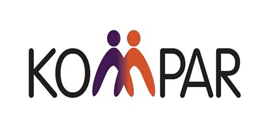The KOMPAR project: a collaborative cross-border platform of training centres in the social and medico-social sector
August 2020
Conseil économique, social et environnemental régional (CESER)
The KOMPAR project is a project associating French and Spanish training establishments aimed at promoting cross-border professional mobility in three main fields of action whose needs are most felt in the cross-border area, namely social integration, early childhood and dependence. It is for occupations in these three fields that the project’s member institutions are seeking to study the possibilities of facilitating cross-border mobility. This action involves, among other things, proposals for the recognition of diplomas and certificates, the validation of professional experience, the introduction of joint diplomas and modules, additional training, etc.

Like MUGIGAIN, the KOMPAR project is part of a process of building a social policy model in the cross-border territory. This platform aims to promote the mobility of students and teachers, to improve the quality of teaching methods, to facilitate professional integration and to contribute to consolidating a partnership network around medico-social training on both sides of the border in which public institutions, employers and vocational training centres would participate.
Thus, the KOMPAR platform is made up of 11 training centres from the three cross-border regions representing 7,500 learners: the New Aquitaine region, the Foral Community of Navarre and the Autonomous Community of the Basque Country. For five years, this cross-border cooperation has brought together seven educational institutions from the Basque Country and Navarre and centres with a regional vocation such as the Institut Régional du Travail Social Nouvelle-Aquitaine (IRTS), as well as the AFEC of Bayonne, the ITS of Pau and Etcharry Formation Développement, co-founder of the platform. KOMPAR has been co-financed for three years by the New Aquitaine - Euskadi - Navarre Euroregion. This platform aims to
-
facilitate professional integration in the cross-border area thanks to the validation of the skills of the platform’s students;
-
promote the mobility of students and teachers within the Euroregion
-
to improve the quality of teaching methods;
-
contribute to consolidating a partnership network around social and medico-social training on both sides of the border.
The professions and training courses concerned are those of educational and social support staff (working at home, in EHPAD, in care homes for dependent elderly people or people with disabilities), young child educators and specialised educators and monitors. KOMPAR is committed to putting training centres in touch with local players.
To do this, it combines :
-
individual and collective mobilities, including virtual meetings
-
the development of a common module in active and collaborative pedagogy
-
the exchange of practices in the internationalisation of vocational training centres.
In order to overcome barriers related to certification, the project advocates the comparison of competency frameworks for the identification and validation of qualifications on both sides of the border. The project associates the certifying bodies with a reflection on the authorisation to practice on the two national territories with a diploma from the country of origin, by means of
-
the upgrading of competences referentials - identifying common points and differences - which allows the elaboration of individual pathways for students through ECVETs;
-
the evaluation and, if necessary, the validation of the competences of French and Spanish students through the Validations des Acquis de l’Expérience (VAE). One of KOMPAR’s sending and receiving training centres will thus be able to accompany the request of each person wishing to complete their course or validate their experience and skills so that they can practice their profession on the other side of the border.